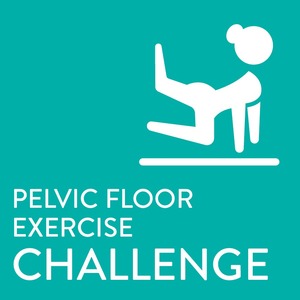NAFCS 8-WEEK-CHALLENGE FOR BETTER BLADDER HEALTH
JOIN OUR NEWSLETTER
Receive custom tools to help you manage your condition and get the latest in bladder and bowel health from NAFC!
Over 25 million Americans suffer from some type of incontinence, making it one of the most widespread conditions in this country. It can profoundly affect people’s social, family and work lives. And yet, studies have shown that most people wait years before even bringing the subject up with a doctor. Embarrassment, shame, and thinking that incontinence is just a part of aging are all reasons this condition is left untreated in so many. But we are here to tell you that incontinence, while it may be common, is definitely not normal. Nor is it anything that you should be ashamed of. It is a health condition that can and should be treated.
PARTICIPATE IN THE NAFC 8-WEEK Challenge
NAFC would like to challenge you to take a step toward treating your incontinence by choosing one simple action you can do to make a big impact. Here’s how the challenge works:
-
SIGN UP for one of the four actions listed below to pledge your commitment to The NAFC 8-Week Challenge.
-
We’ll help you along the way! You will receive a series of 4 emails over the 8 week period with encouragement, tools, and tips to help you complete your goal.
SIGN UP TODAY AND BE ON YOUR WAY TO BETTER BLADDER HEALTH !
I PLEDGE TO USE A BLADDER DIARY
A bladder diary helps you keep track of your daily habits and symptoms, allowing you to see trends over time and learn what foods and drinks may be triggering your incontinence. Plus, it gives your doctor an inside peek at what you’re experiencing and allows him to create a more customized treatment plan for you. Sign up below to participate in The NAFC 8-Week Challenge!
I PLEDGE TO EAT HEALTHIER
Sometimes what we eat can greatly affect our bladder health. Additionally, eating healthy can help keep your weight in check, which can aid in incontinence. Learn about what foods are good for your bladder and some of the foods you may want to try eliminating for better bladder function. Click the button below to sign up for The NAFC 8-Week Challenge!
I Pledge To Incorporate Pelvic Floor Exercises Into My Daily Routine
Strengthening the pelvic floor is a first line of defense against incontinence and can help ease or even eliminate symptoms for many. Adding them to your daily routine is easier than you think! Learn the best moves to add to your workout and discover tips to add them in throughout your day.* Sign up below to participate in The NAFC 8-Week Challenge!
*Always consult with your Doctor or Physical Therapist before beginning any new exercise routine.
I PLEDGE TO TALK TO MY DOCTOR ABOUT MY INCONTINENCE
Talking with your doctor about your incontinence doesn’t have to be embarrassing. We’ll help you find a qualified doctor and share tips on how to prepare for your appointment so that your doctor can create a customized treatment plan that’s just right for you. Click the button below to sign up for The NAFC 8-Week Challenge!
RELATED ARTICLES

Patient Perspective: Bladder Leaks After Baby
Read Sally’s story about her experience with incontinence after having a baby, and her call to action for every woman to speak up about these potential side effects of childbirth.

Your Guide To Eating During The Holidays For A Healthy Bladder
It’s holiday season, and for many, this means an influx of all types of delicious holiday food and drinks. Maintaining healthy eating habits is always

How Do I Know If I Have A UTI Or A Kidney Infection?
It may feel like all urinary tract infections (UTIs) are the same – they all feel pretty uncomfortable! But a UTI can occur anywhere within

Managing Urinary and Digestive Challenges in Advanced Parkinson’s Disease
If you’re caring for a loved one with Parkinson’s disease (PD), you know it comes with a variety of hurdles, both physical and non-physical. As






